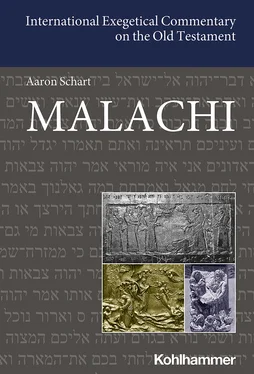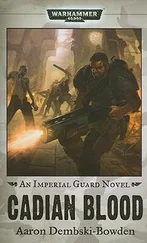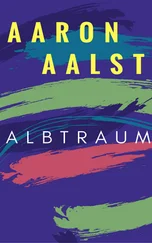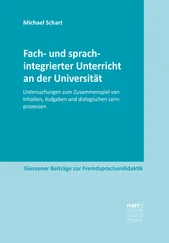To maintain consistent clarity in distinguishing the Greek translation from the Hebrew version I use the phrase “Book of the Twelve” solely for the Hebrew version, referring to the Greek translation as the “ Dodekapropheton ” and its translator as the“ Dodekapropheton translator”. 6
Septuagintal Translation Style The Greek translation is very literal: with few exceptions every morpheme in the Hebrew Vorlage is represented by its precise Greek equivalent. Even the sequence of words and syntax are strictly retained, to the point of occasional imitations of the Hebrew nominal clause. 7
One measure of the great fidelity of the LXX to its Hebrew original is provided by passages that are incomprehensible in Hebrew: in such cases the Dodekapropheton translator renders the text mechanically, word for word, and leaves it to the reader to make sense of it. At MT-Mal 2:3b, for example, the phrase “and he shall lift you up to him” makes no sense in Hebrew. The Septuagint accommodates the predicate to the preceding subject, “Yhwh,” but otherwise translates word for word without producing any sense: “and I will bring you to the same.” It is notoriously difficult to decide whether a deviation from the MT represents a different Hebrew Vorlage , a different understanding of the Hebrew (especially of the meaning of rare lexemes), an inadvertent mistake, or a deliberate alteration.
There are probably only three passages in which the Dodekapropheton translator had a consonantal text in his Vorlage that differed from that of Codex Leningradensis : The Vorlage for LXX-Mal 1:13 had צבאות [= “of hosts”]. In Mal 3:15 zedîm was incorrectly written as zarîm . In Mal 2:16 the verse began with כי אם שׂנאת, kî ’im śāne’tā , attested also in 4QXII a.
Passages in which the Dodekapropheton translator inserted additional words not attested in the Hebrew Vorlage occur six times (Mal 1:1; 1:7; 2:2; 3:3; 3:6a; 3:19 [4:1 ET]). In most cases the translator took the additional words from the immediate context in order to smooth the text.
“Malachi” as Title: “Messenger of the Lord” It is important that the Dodekapropheton translator understood the Hebrew expression מלאכי in Mal 1:1 not as a proper name but as a title, “messenger of the Lord”. He identified this “messenger of the Lord” with Haggai, as we can infer from the borrowing of the injunction “do place it upon your hearts” from LXX-Hag 2:15.
Anthropomorphism The Dodekapropheton translator avoided (evidently on purpose) some anthropomorphic divine statements (e.g., in Mal 1:7b; 1:13a; 2:3a), including the idea that a human can “tempt” or “test” (בחן) God (Mal 3:10, 15).
Writing the nomina sacra It should be pointed out, from a Christian perspective, that the Dodekapropheton was adopted into the Christian canon of the Bible as part of the Greek version of Israel’s scriptures, which Christians refer to as the “Old Testament.” In the course of that editing project it appears that a single change was made to the documents of the Dodekapropheton , namely, a new way of writing the nomina sacra ; that is, particular words that are connected directly with God (such as Kyrios , God, Christ, and Jesus) were written using only the first and last letters of the word, with a single horizontal line extended above them. This was meant to express the belief that both the Old Testament and the New Testament speak of the same God, self-revealed in Jesus Christ. The Dodekapropheton version of the Malachi document is preserved only in its Christian form. The perhaps oldest surviving, but unfortunately only fragmentary manuscript of the Christian version is represented by Codex Washingtonensis (third c. CE). 8The oldest complete versions are in Codex Vaticanus (fourth c. CE) and Codex Sinaiticus (fourth c. CE). 9
Poetic Analysis of the Malachi Document
Poetic Analysis There is dispute over the question whether the text of the Malachi document represents poetry or “exalted prose.” Since poetic lines are more identifiable when they represent bicola, it seems best to focus on those within the framework of our analysis. A bicolon is certainly present when two cola of equal length in one line are semantically parallel to one another in synonymous, antithetical, or synthetic manner ( parallelismus membrorum ). Grammatical and phonetic parallelism regularly accompany this feature.
Judged according to these criteria the Malachi document contains some poetic lines, e.g., in Mal 1:2bβ//3a ; 1:3b; 1:4aγ; 4b; 1:6; 2:10a; 2:17b; 3:1a; 3:2a; 3:2b; 3:5a; 3:6; 3:7aβ; 3:8aα; 3:9; 3:11aβ//bα; 3:12a//bα; 3:14a//bα; 3:18aβ//b; 3:24a [4:6a ET]. Malachi 1:14b can serve as an example because it also reveals how the poetic structure was misread by a later redactor:
Truly, a great king am I [—Yhwh of hosts has said—] //
and my name is reverenced among the nations.
These lines express a self-predication by Yhwh. If we ignore the formula “Yhwh of hosts has said”, the bicolon contains two nominal clauses that are semantic synonyms. The first ends with “I” and the second begins with the synonymous phrase “my name.” The number of consonants is nearly identical in the two cola (12 + 13); the first contains one additional word, “truly,” כי at the beginning of the line, introducing the statement. The statement itself consists of three words, each with its own accent (3 + 3). Within the caesura between the two cola stands the formula “Yhwh of hosts has said”. That formula usually concludes preceding divine speech, yet here the words of God continue uninterruptedly in the second colon. Thus, the formula breaks the flow of thought and the poetic coherence of the line. For that reason it is probable that the quotation formula was secondarily inserted. The example shows that the basic stratum was poetic in form, but a redactor ignored the poetic shaping. We find this kind of reworking again and again, which suggests that the whole of the basic stratum was poetic in form. It is true that, despite intensive literary-critical efforts at reconstruction, some lines are left over; these are not as beautiful and balanced in form as is Mal 1:14b*, but they also have been and can be regarded as poetry. 10
Disputation Speech (Contentious Refutation)
From the point of view of form criticism, the Malachi document, apart from the superscription and the appendix in Mal 3:22–24 [4:4–6 ET], is a collection of so-called “disputation sequences” made up of “disputation speeches.” This form, moreover, exists here in a variant found only in the book of Malachi. In essence a disputation speech is an argumentative rejection of contrary opinions. 11In order to simplify the presentation we will speak of the “prophet” as the one who utters the disputation speech; this person summarizes in his own words and from his own point of view the results of a disputation conducted in the name of Yhwh with some other group.
The basic form of the disputation speech The basic form of the disputation speech was defined by Egon Pfeiffer (1959). 12According to him a disputation speech always contains three formal elements: first, a thesis containing a predicate about the nature of Yhwh; second, a countering question from the opponents that is quoted word for word; third, the prophet’s rebuttal.
The logic of the disputation speech It is not the purpose of the disputation sequence or speech to record the real course of a disputation or to quote the opponents’ exact words. Instead, it is about sketching the content of a disputation in such a way as to depict it from the prophet’s point of view. That is, in the prophet’s eyes, the disputation has already been decided by Yhwh: the opponents’ positions contradict Yhwh’s will. Thus the disputation speech looks back at the real disputation in which the prophet’s divine claims were still in dispute. This also explains why the prophet knows the opponents’ counterquestions and introduces them in qatal , as something that has already happened in the past (“You have said …”), because they were addressed to him in personal confrontation. The fact that such disputations on the oral level were problematic and, among other things, extended over longer periods of time may have formed the background for the talk of “wearying Yhwh with words” (Mal 2:17).
Читать дальше












